Inside Senior Planet, the tech-savviest retirement community on earth.
“All these microaggressions people talk about?” Tom Kamber says. “Just imagine what it’s like when you’re 75.”
Kamber is someone you don’t interview as much as witness. He talks at 1.5 times podcast speed. Blink and you’ve missed three sentences. See his bald head and the Art Deco tattoo snaking down his biceps, or watch him salsa at the intergenerational dance party he put on at a New York club, and he seems the world’s least likely director of a senior center. But listen in. Tom Kamber is getting into ageism—“the last ism,” as he calls it—and Tom Kamber has a lot to say about that.
“When you live in an ageist society, your dreams, which might seem totally normal to you, are a threat to other people,” he warns. He’s speaking not only in rapid-fire sentences, but in paragraphs now. “People are trying to hold you back—because they’re afraid of their own aging. Or because you’re competing with them economically. Because they don’t want to have to introduce somebody else’s ideas into their young-person culture,” Kamber continues, his holy roller sermon coming to its emotional peak. “People are a pain in the ass!”
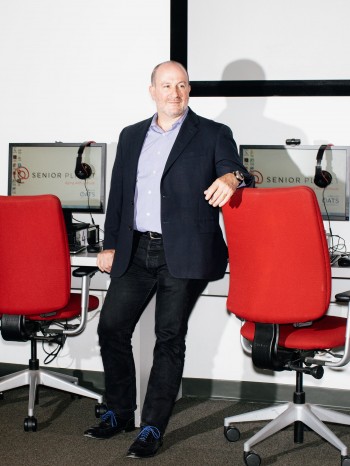
That’s why Kamber created Senior Planet, a tech-themed community center that preps seniors to hack their way through a world conspiring to keep them sidelined. The glass door reads “Aging with Attitude.” With its sleek grays and wood tables, it rivals the WeWork next door in the Chelsea district of Manhattan.
Kamber is pretty exciting, but the place itself is a beehive. By the time he and I sat down to talk, I’d already bought some fingerless gloves from one of its graduates, Madelyn Rich, a fiber artist and entrepreneur who’d paid for her recent Caribbean cruise with her holiday glove sales, mostly online. In a computer lab, a class was learning to use Google Calendar and Google Hangouts. Rachel Roth, a white-haired sophisticate in aviator glasses, wheeled in a cart of her sea-salt-dusted chocolate almonds called Opera Nuts—she hawks them online and through West Elm, Pottery Barn, and Williams Sonoma—and doled out some samples to the staffers in her signature Chinese-takeout-box packaging.
The post-60 set is here for many reasons. By and large, they do not want your wearable panic buttons and fall detectors, thankyouverymuch. They’re here for the free classes and camaraderie, to learn to find the photos their daughter is putting on Facebook, to grok the smart lock system their apartment building is installing whether they like it or not (and mostly not). They want to plug back into a world in which “technology has run them over,” as Kamber puts it.
Roughly one in five arrive wanting to use technology to work and make money—whether because they’ve gotten bored with retirement or to turn a passion into a side hustle. They want Etsy and Instagram, Google Suite and Microsoft Word. They want to process payments on PayPal, and build a Wix website, and email video clips for acting auditions. They want to open stores aimed at older people like themselves, and launch magazines for curvy women, and drive around Harlem in their own dog-grooming van. They may want to reach their goals even more than younger folks do, because when you get to a certain age, “your horizon is shorter—your dreams become more critical and urgent,” Kamber says.
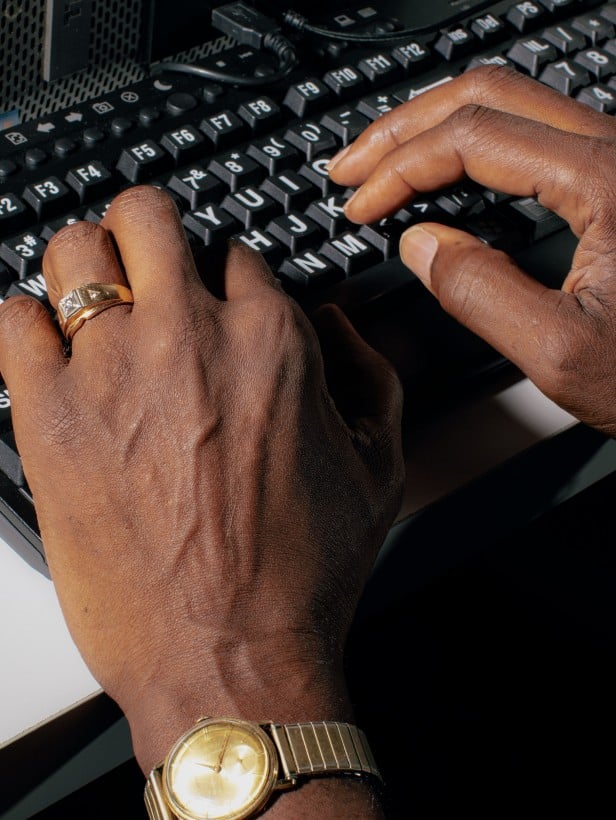
But then there are those blocks. Those people being pains in the ass. “When you’re a senior, and you’ve got an idea, and you want to make it happen,” Kamber says, “somebody’s got to help out a little bit.” So for the past 15 years—in a curriculum now getting recognized by the biggest names in aging, spreading across the US and abroad—Kamber’s nonprofit has created a platform of sorts to empower those seniors to “uncork their lives.”
If anyone is uncorked, it’s Calvin Ramsey. After years of toiling in insurance sales, Ramsey was in his early 50s when he decided to give his playwriting dreams one last chance. He wrote a play and then a children’s book about the Green Book, the mid-century guide to businesses across the country that would welcome black motorists in an era of segregation. He managed to get the play produced and the book published barely knowing how to send an email. (It involved a lot of cold-calling and post-office runs.) As his writing career picked up in his 60s, Ramsey made the big move from Atlanta to the middle of the New York theater scene.
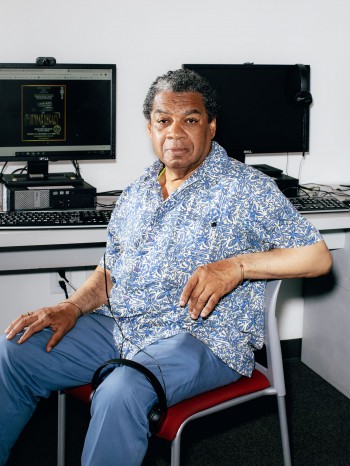
Soon after, he walked into Senior Planet—dressed, as he often is, in a natty suit—to take some beginner courses, figuring it was time to stop avoiding the terms of the modern world. First: getting over his fear of “breaking the machine.” Next: email, to send his scripts to directors and actors as his works were staged across the country. “It makes things so much easier!” he says. Then he graduated into the higher-order tasks: Senior Planet’s staffers helped him build a website featuring his work, and he started Skyping about his children’s book with remote classrooms of elementary schoolers.
One day, as Ramsey sat in nearby Bryant Park, Brandon Stanton, the creator of the hugely popular photo blog Humans of New York, approached him for an interview about how his life had taken off in his 60s, and shot his portrait. Stanton advised him to quickly launch a Facebook page to capitalize on the 18 million fans the blog would shortly be pointing his way. Ramsey jetted straight to Senior Planet, the staffers helped him set up an author page, and days later, Calvin Ramsey—the man who until recently couldn’t send an email—had 37,000 followers waiting for his next bit of news.
More older people than ever are working: 63% of Americans age 55 to 64 and 20% of those over 65. Yet it’s unclear whether they are doing so because they want to or because they have to. The age for receiving full Social Security benefits is rising to 67 by 2027. Americans are entering retirement with more debt and less in savings, and the Great American Pension has become a relic of another era. On the brighter side, people are living longer, and a growing body of research makes the point that work—at least some of it, on your own terms—makes those extra years more enjoyable. For example, researchers at UCLA and Princeton found that seniors who rarely or never “felt useful” were nearly three times as likely to develop a mild disability or even die during the study.
I dropped in on a Senior Planet course called, bluntly, “Work.” The class was learning to use Google Hangouts, and as the lesson wrapped up, a woman with a sharp bob, named Jean McCurry, stopped to talk. She still serves on a couple of boards after a career in higher education, she told me, but pines for the collegiality and structure her old job gave her: “The accountability and responsibility—you really miss it when you retire.” McCurry mentioned a friend older than herself who got a job teaching online courses for a state university, noting, “That’s how she remained relevant in her 90s.”
She was optimistic about getting back in the game, but I couldn’t help feeling a little worried about the daunting discrimination she would face. The ageism of the era is perhaps best exemplified by Mark Zuckerberg’s infamous assertion back in 2007 that “young people are just smarter,” but it’s not just anecdotal: in a 2017 study by the Federal Reserve Bank of San Francisco, researchers invented résumés for fictitious applicants of various ages, and sent them in response to real-life ads for janitors, salespeople, and security guards. They found that in nearly every job category, the older applicants got fewer callbacks than the middle-aged applicants, who got fewer than the young ones. The drop-off was particularly marked for older women; the researchers speculated—depressingly, but not surprisingly—that women’s physical appearance is more important in service-related careers, and women’s physical aging was judged more harshly than men’s.
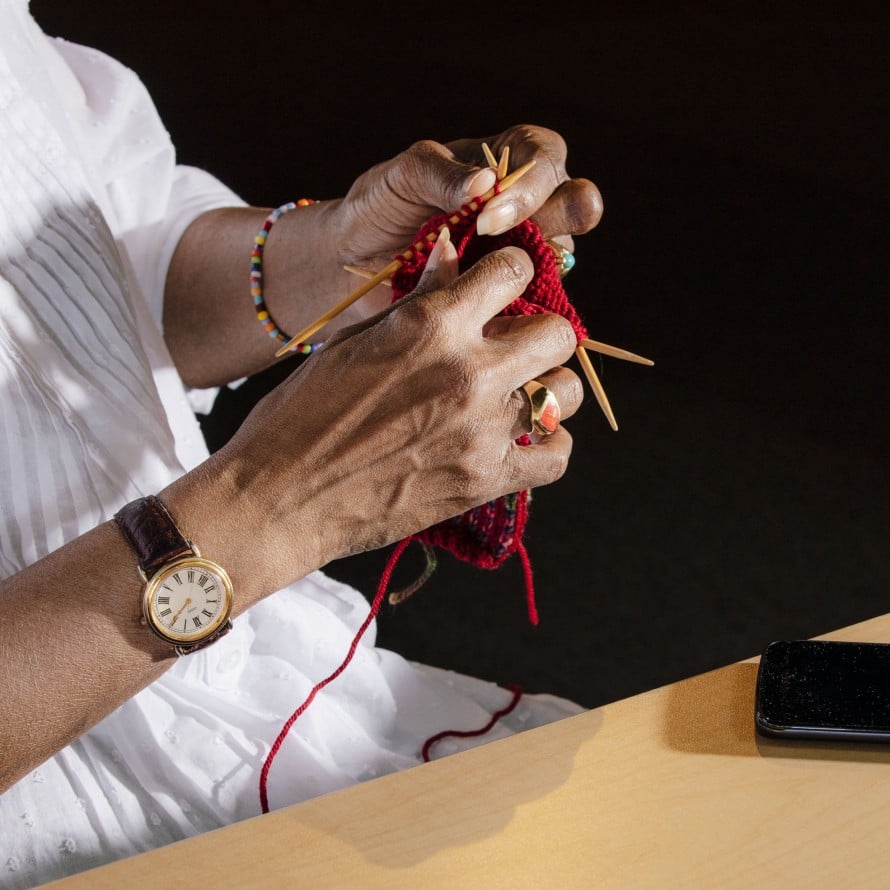
With such obstacles to getting a job, and a desire to control their own schedules after years on someone else’s clock, it’s not surprising that some folks take the entrepreneur route.
I found Michael Taylor in the Wix class. Taylor looks like Samuel L. Jackson, with a white-flecked mini-fro. He’s a 71-year-old who could pass for 45; he even once got accused of fraudulently using a senior card. When he closed his antiques store in 2009 because of skyrocketing rent and dwindling sales, he didn’t want to stop working. His grandfather retired at 84, and “a year later, I saw somebody that wasn’t there before—I saw an old man,” he recalls. “And I’m like, ‘If that’s what retirement does for you, I don’t want it.’ So I plan on working until God calls me home or just until I can’t work any longer.” Still, he faced that familiar problem: “I found getting a job is not that easy if you’re not the 20, 30, or mid-40s candidates.”
So in his 60s, Taylor says, “I asked myself, what do I want to do when I grow up?” In 2010, he enrolled in the New York School of Interior Design, earning a bachelor’s and a master’s and sometimes marveling at his own gumption: “One day I was sitting there studying for a final exam, and I said to myself, ‘You’re studying when you should be worried about dementia setting in!’”
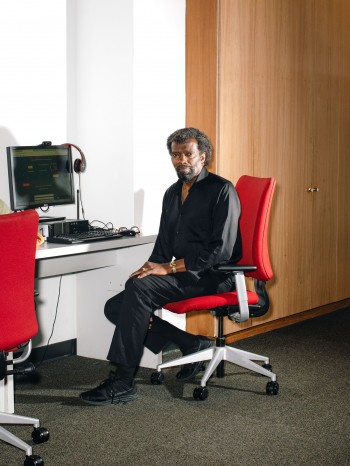
He heard about Senior Planet through someone in his yoga class on the Lower East Side. Part of the coursework was learning the new digital tools of his trade: he pulls out a Surface tablet to show me room renderings he created in design software. He also learned to build his business website. He navigates around the work-in-progress, showing me the page showcasing before-and-after photos of his first job—the apartment of a friend who wanted an upgrade for maximum Airbnb monetization. “I like what I’m seeing here,” he says, considering the photo layout, making a note to Photoshop out the creases in the sofa.
Taylor has had to make certain adjustments in order to land lucrative clients, including refining his self-presentation. He doesn’t lead with his age, and he doesn’t mention anything before 1970. A friend advised him not to grunt when he stands up, and at one meeting, Taylor “accidentally” dropped his keys to show how nimbly he plucked them up. “You don’t want them to think ‘Is he going to make it?’” he says. He laughs at himself, and then puts in his earbuds and takes a call from a client.
On a Monday morning, a class called “Startup!” was diving into a lesson on online marketplaces. A goateed instructor named Roberto was explaining to his dozen students how to increase “arbitrary value” on a platform like Etsy—things like a compelling story that subtly convinces the buyer the product is worth paying more for. Ageism once again popped into the discussion. A woman with a crown of curly hair, who travels to class from Brooklyn, was trying to ramp up her business in hand-sewn lace pillows and curtains. She wondered whether her company’s public face should be younger: “I’m thinking about vanity. If my product was high-end, I’d consider whether I’d be doing it, or having a friend of mine or a niece do it.”
Roberto asked them to practice pitching their startup to the group. Several ideas were aimed at their own needs—a grocery store focused on saving folks from a long walk, a dog-grooming van that could roll up to your front door, a handyman aimed at Bronx seniors on a fixed income. But it wasn’t just by seniors, for seniors. One woman who had promoted jazz shows in Harlem for years wanted to learn how to price her services; another wanted to open a bar. At the end of each pitch, the students clapped enthusiastically.
Entrepreneurial advice was not what Kamber had originally thought seniors wanted. In the early aughts, he was the New York director for a social-justice-oriented nonprofit when he started tutoring a woman in her late 70s to get online. The idea grew into an organization called Older Adults Technology Services (OATS) in 2004. Kamber, who taught the first class at a public-housing computer lab himself, secured funding from the city to develop the curriculum, and used focus groups to ask seniors what they wanted.
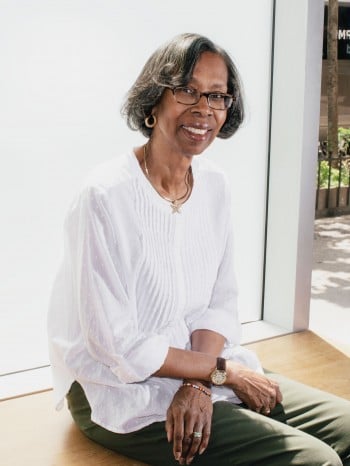
Their responses revealed that the root problem wasn’t about how to use technology. They didn’t want to simply learn how to email or join Facebook; they wanted a way to beef up their social network after their partner or friends had died. They didn’t just want to surf the web; they wanted to contact their member of Congress or apply for benefits. In short, their desires weren’t about tech, but about what tech would let them do. “We realized it was actually about aging,” Kamber says. “It’s about aging, stupid!”
Kamber raised grant money, hired professional instructors, and spread the programming—all free—to 40 computer labs across New York’s five boroughs. OATS launched the first Senior Planet space in 2013, a Manhattan hub of community and energy.
Some of the earliest students, like Rich, the knitting entrepreneur, found the center’s dynamism a welcome departure from the typical senior center. Still, she told staff what she really needed help with was selling her wares online. When volunteers from Google visited the center one day, one of them asked Rich—she slows her voice as if talking to someone who might have trouble keeping up—“Do. You. Want. To. Open. A. Gmail account?” Rich told him she was already on Gmail; she wanted to see the Google Analytics of her website. “His eyes just lit up!” she recalls.
Senior Planet staffers helped Rich get on Etsy, and she met Rachel Roth, who first strode into the center as she was in the throes of launching Opera Nuts. The two women suggested that Senior Planet let them hold a market in its prime office location to sell their wares, and together they launched the Senior Planet Holiday Bazaar. Rich and Roth now call each other to troubleshoot their website woes as their respective businesses take off.
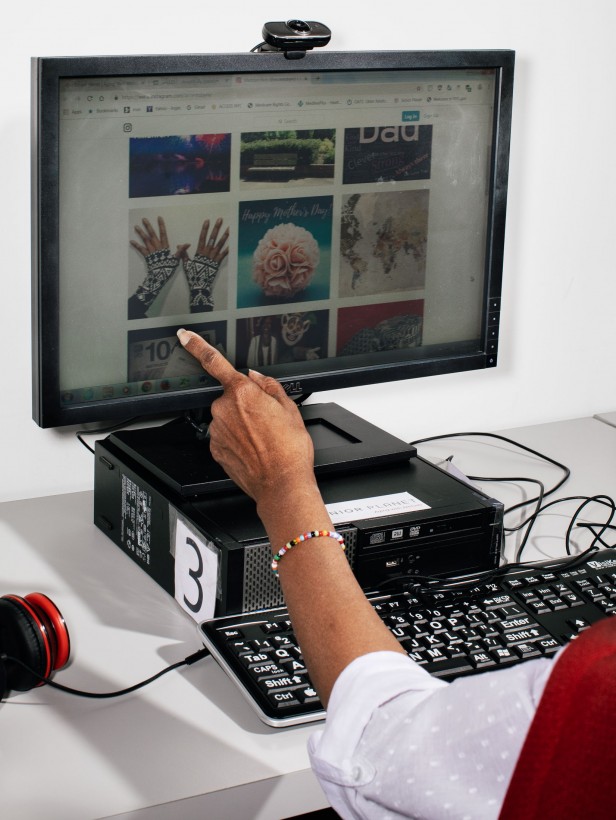
Kamber’s brainchild is expanding. OATS has opened centers in rural upstate New York, Maryland, Texas, and Colorado. There’s also a center in Israel, with talk of others in Spain and Japan.
In June, I visited the new center that had opened in a renovated space in downtown Palo Alto, California, called Avenidas. Oculus VR headsets sat ready for classes that would begin in July, and slideshows of members in other cities (like Rachel Roth) flashed on TV sets freshly mounted on the walls. Kamber, who’d flown in from speaking at a conference in Russia, addressed a room packed with startup founders who’d launched apps serving older users, as well as 150 Silicon Valley seniors. Kamber told them a story of one of Senior Planet’s New York participants, an actor whose faltering hearing made it difficult to find out about auditions over the phone. Learning to email for the details instead, he extended his career by years.
Back in New York, the seniors continue dropping by even when they’re not enrolled in a class: sometimes to take advantage of tech help, or to organize a lobbying trip to Albany, the state capital, for more funding, or to see, say, Calvin Ramsey present his latest show.
One morning in June, Ramsey strode in wearing a linen suit and his black sunglasses and took a seat at the bank of computers. The following night, he’d be talking to people half his age at the National Writers Union about how to market their work. “This whole writing thing has been an out-of-body experience,” he said, wide-eyed.
He turned to the task of the day: sending out a teaser for his new play about the first black graduate of Yale. Ramsey opened a Word document and chicken-pecked out letters with two fingers. Diligently, he attached the announcement to an email and added dozens of recipients. Then he thought of more people, and added them; then he thought of even more, and added them, too. He finally pushed “Send,” saying “Psheeew!” like a spaceship taking off. Within minutes, replies started coming back, filled with congrats.
Lauren Smiley is a journalist in San Francisco covering humans in the tech age.
